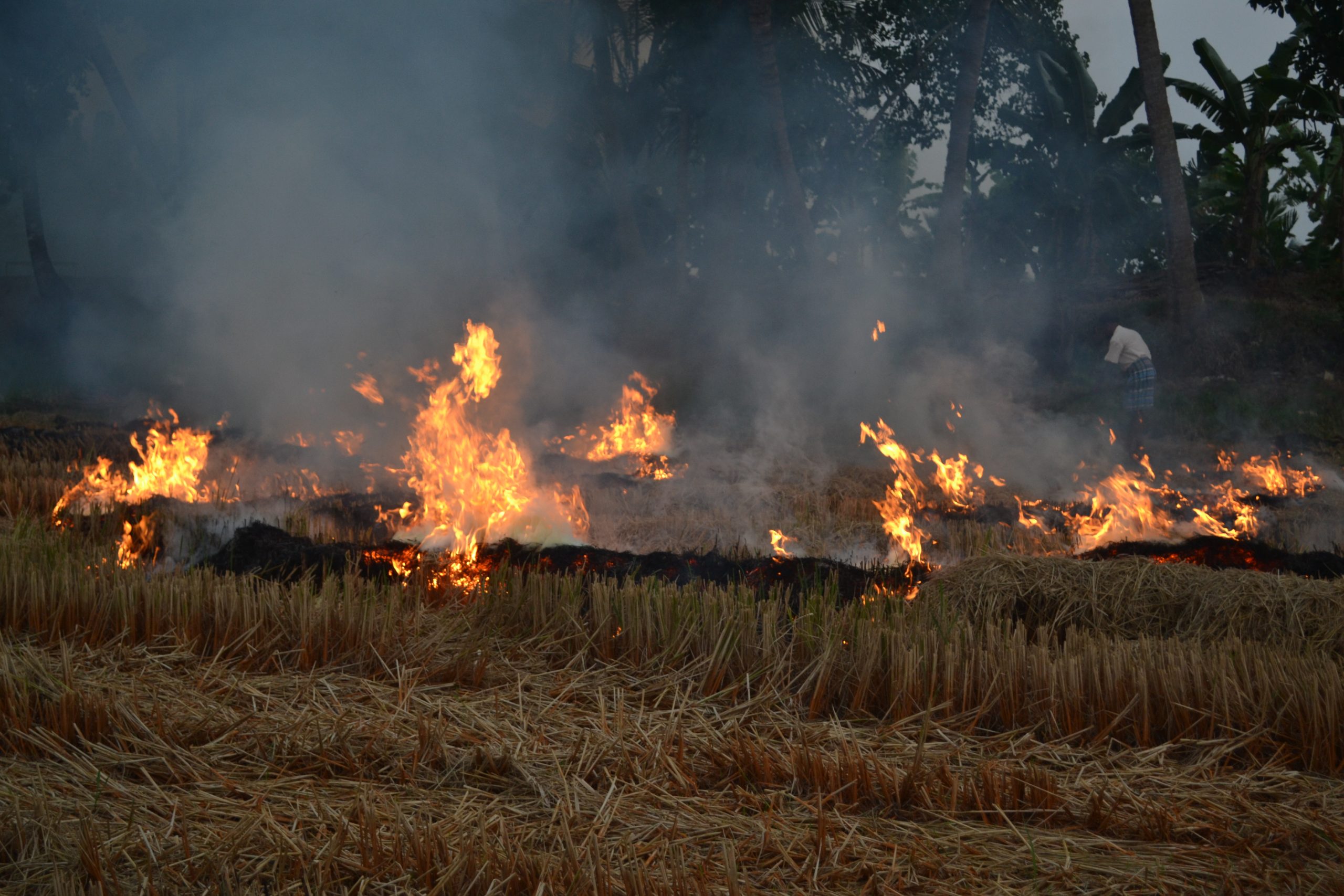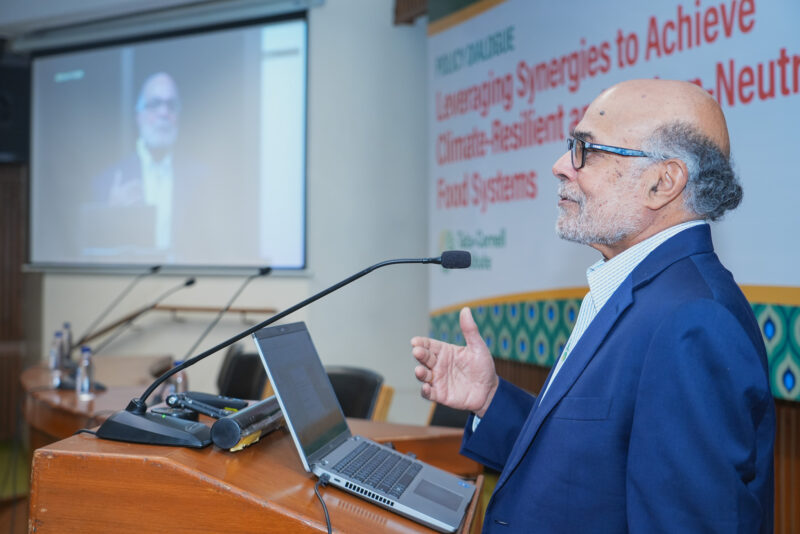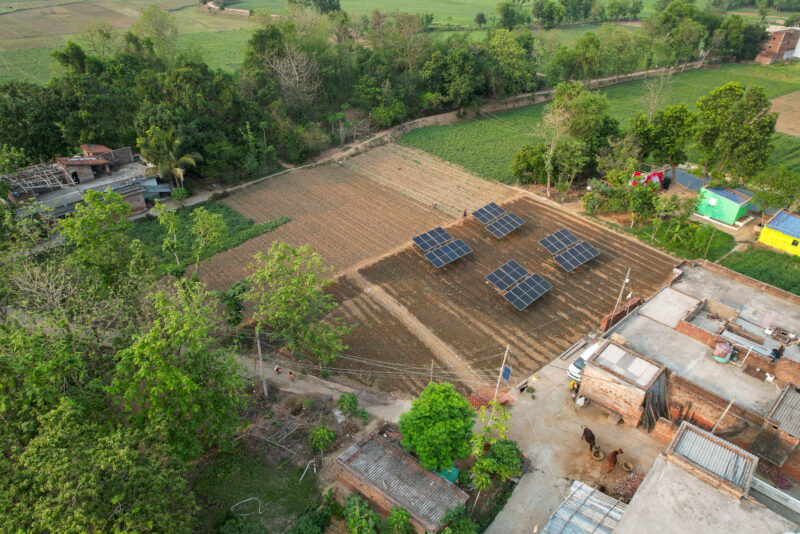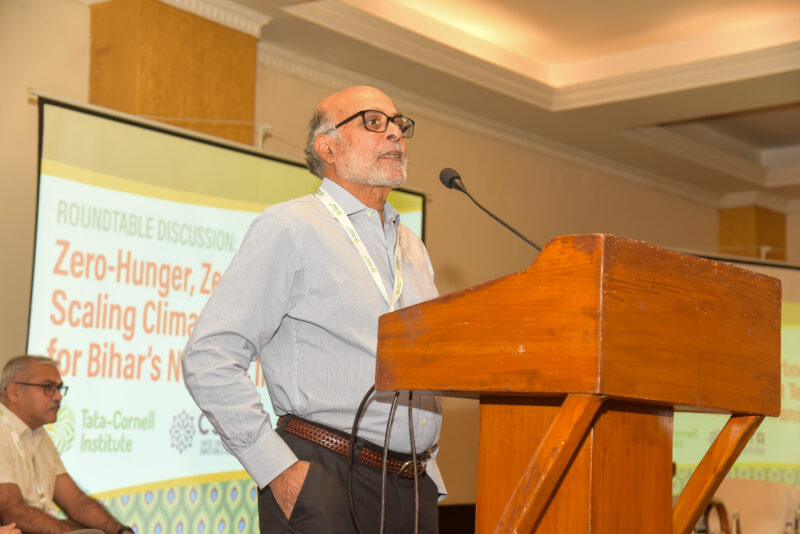Project Aims to Curb Farm Waste Burning

The haze of pollution that settles over Delhi, India, has many sources directly in the city, such as the more than 10 million cars that drive on its roads. But some of the smog comes from hundreds of miles away, where twice a year, rice farmers burn the stubble or straw left over after harvesting paddy.
A new project supported by the Tata-Cornell Institute for Agriculture and Nutrition (TCI) aims to curtail that practice and provide a boost to farmers’ livelihoods by using rice straw to create green construction materials. Led by Cornell University Professor Anil Netravali, the Farm Waste to Furniture Project is developing a process that turns the straw into composite panels that can replace commonly used wood-based products like particleboard and plywood.
Air pollution is a serious problem in India. In 2019, 20% of all deaths in the country were attributable to air pollution, costing a GDP loss of 1.36% valued at $36.8 billion. According to a report from the government’s environment ministry, crop residue burning contributed 15% of India’s air pollution in 2020.

Graduate student Sripathi Dev Sharma Kopparthy operates the needle-punching machine that helps form mats out of rice straw and jute fabrics. (Photo by Abdullah Alkandary)
“Our goal is to utilize the rice straw in a value-added way that will have quadruple benefits,” Netravali said. “Successful implementation of the project can significantly reduce the air pollution caused by stubble burning, create large numbers of manufacturing and related jobs, help farmers earn a little extra money, and reduce India’s dependence on wood for housing and interior furniture.”
As part of the panel-making process, chemically treated rice straw is blended with jute or nonwoven fabrics to form mats layered with plant-based resins and starches. Using plant-based materials eliminates the need for the formaldehyde-based resins used to make particleboard, which release carcinogenic off-gases. The process is also water-based and uses relatively little energy.
Netravali said the panels can be engineered for a wide variety of uses and the process can be easily transferred to India for large-scale production, where widely available jute fabrics should lower the costs involved. By creating a demand for what is typically considered waste, the composite panels also have the potential to create a new revenue stream for rice farmers.
Netravali is the Jean & Douglas McLean Professor in Fiber Science and Apparel Design and director of graduate studies in the College of Human Ecology. He is assisted on the Farm Waste to Furniture Project by graduate students Sripathi Dev Sharma Kopparthy and Abdullah Alkandary.





